This article was medically reviewed by Luba Lee, FNP-BC, MS. Luba Lee, FNP-BC is a Board-Certified Family Nurse Practitioner (FNP) and educator in Tennessee with over a decade of clinical experience. Luba has certifications in Pediatric Advanced Life Support (PALS), Emergency Medicine, Advanced Cardiac Life Support (ACLS), Team Building, and Critical Care Nursing. She received her Master of Science in Nursing (MSN) from the University of Tennessee in 2006.
There are 10 references cited in this article, which can be found at the bottom of the page.
wikiHow marks an article as reader-approved once it receives enough positive feedback. This article received 52 testimonials and 91% of readers who voted found it helpful, earning it our reader-approved status.
This article has been viewed 457,982 times.
Pneumonia is an infection that inflames the air sacs in one or both lungs. When inflamed, the air sacs may fill with fluid, causing patients to suffer from cough, fever, body aches, chills, extreme fatigue, and difficulty breathing. It is possible to treat pneumonia with antibiotics, inhalers, fever reducers, and cough medicine, though in some cases — particularly for those with a weakened immune system, newborns, and the elderly — it requires hospitalization. [1] Despite the possible severity of pneumonia, it is possible for otherwise healthy individuals to completely recover within one to three weeks. [2]
Steps
Consulting Your Doctor
-
1Recognize the warning signs. For healthy individuals, pneumonia can start like the flu or a bad cold. The major difference is that the feeling of being sick feels more severe and lasts much longer when you are suffering from pneumonia. If you are experiencing prolonged sickness and aren’t getting better, you may have pneumonia, so it is important to know the symptoms to look out for. Specific symptoms will vary from person to person, but they generally include some or all the following. [3]
- Fever, sweating, and shaking chills
- Cough, which may produce phlegm
- Chest pain when you breathe or cough
- Shortness of breath or difficulty breathing
- Tiredness
- Nausea, vomiting, or diarrhea
- Confusion
- Headache
- Extreme fatigue
-
2Seek out your doctor. If you are experiencing the above symptoms, and have a fever of 102°F (39°C) or higher, you should notify your healthcare professional. He will be able to advise you on the best course of action. This is especially true for vulnerable groups, which include children under two, adults over 65, and people with a weakened immune system.Advertisement
-
3Plan the road to recovery. Once at your doctor's office, they will perform a number of tests to determine if you do indeed have pneumonia. If you do, the doctor will be able to either recommend treatment or, in some cases, suggest hospitalization. When you visit the doctor, you can expect them to begin with a physical exam and possibly move on to a number of other tests. [4]
- The doctor will listen to your lungs with a stethoscope, listening specifically for crackling, bubbling, and rumbling sounds when you inhale, and for areas of your lungs where the sound of breathing cannot be heard as normal. The doctor may order a chest X-ray.
- Note that viral-based pneumonia does not have a known treatment. Your doctor will inform you what to do in this case. However, viral pneumonia can progress to bacterial pneumonia and may still be treated with an antibiotic.
- For hospitalized cases, you will receive antibiotics, intravenous fluids, and possibly oxygen therapy to treat pneumonia.
Getting Well
-
1Follow your doctor's orders exactly once at home. Pneumonia is treated primarily with antibiotics, usually azithromycin, clarithromycin, or doxycycline. Your doctor will choose which specific antibiotic you should take based upon your age and medical history. [5] Once your doctor provides you with a prescription, have it filled immediately by bringing it to your local pharmacy. It is very important that you finish the full course of antibiotics prescribed by your doctor and follow any instructions written on the bottle unless instructed otherwise by your doctor.
- Even if you feel better, stopping antibiotics early can create bacteria that are resistant to antibiotics.[6]
-
2Take it slow and easy. For otherwise healthy individuals, the antibiotics prescribed by your doctor will typically begin to make you feel better in approximately one to three days. During these first days of recovery, it is vital that you get as much rest as possible and that you drink plenty of fluids before you return to your regular activities. Even after you begin to feel better you should not overexert yourself, as your immune system is still recovering. This is important because overexertion may lead to a reoccurrence of pneumonia.
- Drinking fluids (particularly water) will help break up mucus in your lungs.
- Again, finish the entire course of medication prescribed by your doctor.
-
3Eat a healthy diet. Eating the right food cannot cure pneumonia, however, a good diet can assist in a normal recovery and keep your gastrointestinal tract healthy while you’re on antibiotics. Try some nutrient-rich foods, like bone broth or chicken broth with vegetables. Enjoy colorful fruits and vegetables as much as you can tolerate them. They contain antioxidants, which help your body resist and recover from disease. Whole grains are important as well, but you may want to hold off on them while you’re recovering since gluten can upset your GI tract. Low-glycemic vegetables, like carrots, broccoli, cauliflower, and sweet potatoes are a good source of carbohydrates, vitamins, and minerals that will boost your immune system and energy levels without causing more inflammation. Finally, add protein-rich foods to your diet. Protein provides the body with anti-inflammatory fats. Always check with your doctor if you plan on making significant changes to your diet.
- Try eating sweet potatoes and brown rice to your diet.
- Try eating lean chicken and fish to add protein to your diet. Avoid fatty meats, such as red meat or processed meat.
- Again, drink plenty of fluids to hydrate and help thin out any mucus in your lungs.
- Chicken soup is a good source of fluids, electrolytes, protein, and vegetables!
- Supplement with vitamins and minerals, like vitamins C and D, fish oil, glutathione, and probiotics since they’re important for recovering from pneumonia.
-
4Clean your home to keep it sanitary. Getting rid of germs and irritants around your home can help you feel better during your recovery. Make sure you change your sheets, dust, and mop your floors so the irritants don’t get airborne. Using a HEPA filter in your bedroom while you sleep also keeps the air clean so your condition doesn’t get worse.[7]
-
5Practice slow breathing exercises with an incentive spirometer. Trying to catch your breath after pneumonia can be difficult, but an incentive spirometer helps you take slow, deep breaths. Sit up straight and put the spirometer’s mouthpiece in your mouth. Breathe out as you normally would, but inhale slowly. Try to keep the small ball or disk on the spirometer in the middle of the chamber as you breathe in. Hold your breath for 3–5 seconds before exhaling again.[8]
- Take 10–15 breaths with your spirometer every 1–2 hours, or as often as your doctor recommends.
-
6Try doing yoga to help clear your lungs. Practicing some deep yoga stretches can help clear out phlegm and fluid in your lungs. Try out some basic poses, such as the easy pose, sun salutation, corpse pose, mountain pose, or warrior pose. Incorporate yoga in your daily routine for a few minutes every day so it’s easier for you to relax and breathe.[9]
- Massaging the area over your lungs can also help break up the liquid in your lungs so you’re more likely to clear it out when you cough.
-
7Revisit your doctor if necessary. Some (but not all) doctors will schedule a follow-up visit. This will typically take place one week after your initial visit, and the doctor will want to make sure the prescribed antibiotics are working. If you do not feel any improvement over the course of this first week, you should call your doctor immediately to schedule a follow-up appointment.
- Normal recovery time from pneumonia is one to three weeks, though you should begin to feel better after several days of antibiotics.
- If symptoms persist for a week after you have begun taking antibiotics, this may be a sign you are not recovering, and you should contact your doctor immediately.
- If the infection persists with antibiotic treatment, patients may still require hospital-level care.
Returning to Your Healthy Self
-
1Resume your usual routine gradually, and with your doctor's permission. Keep in mind that you will be easily exhausted and you may want to start slow. Try to be out of bed and be active without becoming too tired. You can gradually work your way up to one or two daily activities in order to give your body a chance to fully recuperate.
- You can begin with simple breathing exercises in bed. Inhale deeply and hold for three seconds, then release with lips partially closed.
- Work your way up to short walks around your home or apartment. Once this is not exhausting, begin to walk longer distances.
-
2Protect yourself and your immune system. Remember that while recovering from pneumonia, your immune system is in a weakened state. It is a good idea to protect your weakened immune system by avoiding individuals who are ill and by avoiding highly populated areas such as shopping malls or markets.
-
3Take care about returning to school or work. Given the risk of infection, you should not return to school or work until your temperature returns to normal and you are no longer coughing up mucus. Again, doing too much can risk a reoccurrence of pneumonia.
Expert Q&A
-
QuestionIs bed rest required after treatment in a hospital?
 Chris M. Matsko, MDDr. Chris M. Matsko is a retired physician based in Pittsburgh, Pennsylvania. With over 25 years of medical research experience, Dr. Matsko was awarded the Pittsburgh Cornell University Leadership Award for Excellence. He holds a BS in Nutritional Science from Cornell University and an MD from the Temple University School of Medicine in 2007. Dr. Matsko earned a Research Writing Certification from the American Medical Writers Association (AMWA) in 2016 and a Medical Writing & Editing Certification from the University of Chicago in 2017.
Chris M. Matsko, MDDr. Chris M. Matsko is a retired physician based in Pittsburgh, Pennsylvania. With over 25 years of medical research experience, Dr. Matsko was awarded the Pittsburgh Cornell University Leadership Award for Excellence. He holds a BS in Nutritional Science from Cornell University and an MD from the Temple University School of Medicine in 2007. Dr. Matsko earned a Research Writing Certification from the American Medical Writers Association (AMWA) in 2016 and a Medical Writing & Editing Certification from the University of Chicago in 2017.
Family Medicine Physician You might want to take it easy for a couple of day after you are discharged from the hospital. Bed rest can help you recover.
You might want to take it easy for a couple of day after you are discharged from the hospital. Bed rest can help you recover. -
QuestionHow do I break up mucus caused by pneumonia?
 Chris M. Matsko, MDDr. Chris M. Matsko is a retired physician based in Pittsburgh, Pennsylvania. With over 25 years of medical research experience, Dr. Matsko was awarded the Pittsburgh Cornell University Leadership Award for Excellence. He holds a BS in Nutritional Science from Cornell University and an MD from the Temple University School of Medicine in 2007. Dr. Matsko earned a Research Writing Certification from the American Medical Writers Association (AMWA) in 2016 and a Medical Writing & Editing Certification from the University of Chicago in 2017.
Chris M. Matsko, MDDr. Chris M. Matsko is a retired physician based in Pittsburgh, Pennsylvania. With over 25 years of medical research experience, Dr. Matsko was awarded the Pittsburgh Cornell University Leadership Award for Excellence. He holds a BS in Nutritional Science from Cornell University and an MD from the Temple University School of Medicine in 2007. Dr. Matsko earned a Research Writing Certification from the American Medical Writers Association (AMWA) in 2016 and a Medical Writing & Editing Certification from the University of Chicago in 2017.
Family Medicine Physician You might want to take mucolytics such as Mucinex to help break up the mucus and help you to expectorate it.
You might want to take mucolytics such as Mucinex to help break up the mucus and help you to expectorate it.
References
- ↑ https://www.nhs.uk/conditions/pneumonia/
- ↑ http://www.lung.org/lung-health-and-diseases/lung-disease-lookup/pneumonia/learn-about-pneumonia.html?referrer=https://www.google.com/
- ↑ https://www.nlm.nih.gov/medlineplus/ency/article/000145.htm
- ↑ http://www.lung.org/lung-health-and-diseases/lung-disease-lookup/pneumonia/diagnosing-and-treating.html
- ↑ https://www.drugs.com/medical-answers/antibiotics-treat-pneumonia-3121707/
- ↑ https://www.cdc.gov/pneumococcal/clinicians/drug-resistance.html
- ↑ https://www.cdc.gov/mmwr/preview/mmwrhtml/rr5303a1.htm
- ↑ https://medlineplus.gov/ency/patientinstructions/000451.htm
- ↑ https://www.researchgate.net/publication/341312580_EFFECTS_OF_YOGA_EXERCISES_ON_RESPIRATORY_DISORDERS
- ↑ https://www.cdc.gov/flu/prevent/flushot.htm#Tips for Your Recovery
About This Article
To recover from pneumonia, first visit your doctor to get a diagnosis and receive a treatment plan, which may include resting and taking antibiotics. As you rest, try to eat a healthy diet full of fruits and vegetables to strengthen your immune system, and drink plenty of water to break up the mucus in your lungs. Since you have a weakened immune system, you may want to avoid going to work, school, or anywhere with a lot of people until you’re fully recovered. To learn how to do exercises to improve your breathing, read more from our Physician co-author.
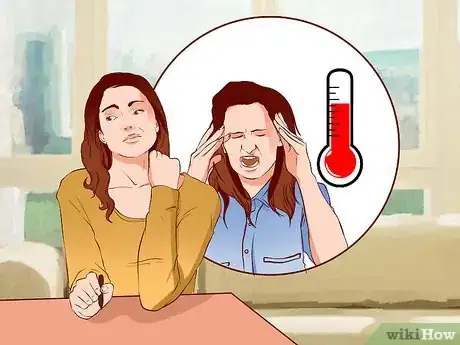
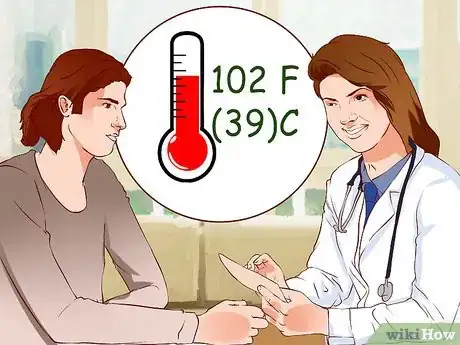

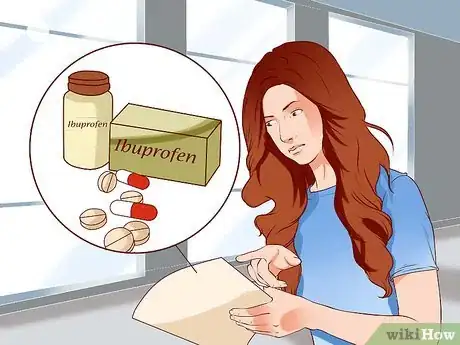


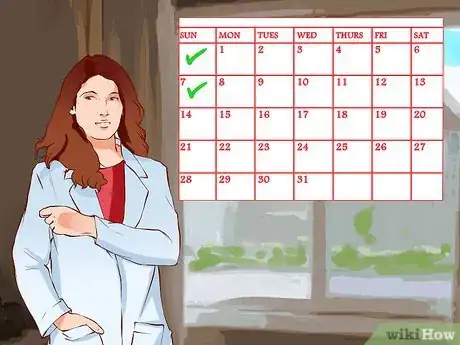




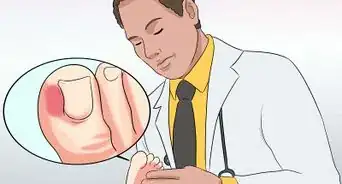
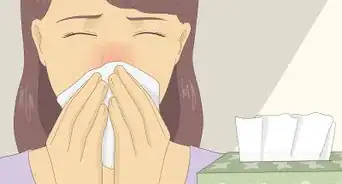























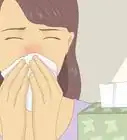




































Medical Disclaimer
The content of this article is not intended to be a substitute for professional medical advice, examination, diagnosis, or treatment. You should always contact your doctor or other qualified healthcare professional before starting, changing, or stopping any kind of health treatment.
Read More...